Drinking LiveGood Coffee to Lose Weight-The Good and the Bad
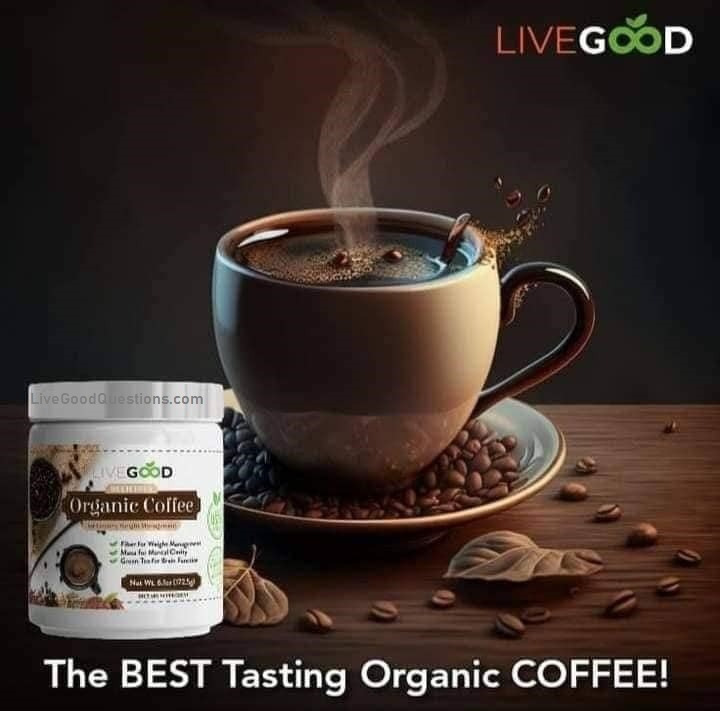
We are all aware that coffee offers numerous health advantages. And LiveGood Coffee is a great option to fill in your morning cup of joe. It can grant you more years of life, provide solace to weight-conscious individuals, aid digestion, and, for some, even strengthen their cognitive functioning. Furthermore, there is also emerging evidence to suggest that regular caffeine intake may offer a range of long-term benefits by reducing our likelihood of experiencing certain chronic diseases and conditions.
However, what about the weight loss angle? It turns out that coffee and weight loss might be a bit more complicated than we’d hope. That’s not to say that coffee itself is a problem, but if we look at some of the ways people typically drink coffee, we have to understand that coffee and caffeine effect everyone differently.
In this post I will talk about some of the good and some of the bad.
Good: LiveGood Coffee can keep your hunger in check.
OK, here’s the deal: When you want to shed pounds, the basic formula calls for burning more calories than you take in. But guess what? LiveGood Coffee could perk up that process. Why? Because, according to registered dietitian Amanda Kostro Miller, caffeine can act as an appetite suppressant. So if you’re doing this intermittent fasting route to try and lose weight, a cup of coffee can quiet your growling tummy without ruining your fasting high. But that’s not all. Drinking coffee about 30 minutes before you sit down to eat might also help you eat less.
Compelling research in the International Journal of Food Sciences and Nutrition verifies this claim. In essence, coffee deceives your brain into perceiving satiety much earlier than it would if you were consuming no java at all—a promising prospect for those seeking to shed pounds. Moreover, another study discovered that this not-so-little appetite-curbing side effect of coffee can potentially persist for a long time and might even help some people reverse obesity entirely.
In summary, try drinking your coffee before you eat, but don’t overdo it. It could provide a push for your weight loss attempts. I would also stay away from that late afternoon cup. It could effect your sleep. Personally, I don’t have any caffeine after 12pm.
Good: LiveGood Organic Coffee Contains a Powerful Blend
This amazing organic coffee is packed with amazing ingredients and benefits. LiveGood Organic coffee is unlike any other coffee available. The secret is in the ingredients. We select only the highest quality ingredients, grown in the cleanest, most pure, and lush places on the planet. Combined with our patented formula, you have a coffee that is far superior to anything else out there…Formulated with a powerful combination of healthy ingredients, including maca, green tea, and six adaptogenic mushrooms, LiveGood Healthy Organic Weight Management Coffee with Mushrooms can’t be beaten when it comes to providing health benefits in a cup of coffee.
LiveGood Coffee Mushroom Blend
- King Trumpet: Anti-inflammatory
- Cordyceps: All day energy
- Turkey Tail: Gut Health
- Lion’s Mane: Focus
- Shiitake: Immune Support
- Reishi: Stress Relief
Bad: Drinking coffee might make you want more sweet treats.
Coffee often goes hand in hand with some not-so-great habits, especially if you’re trying to lose weight. If you’re the sort of person who can’t have a cup without also having a slice of cake or who just needs to have something sweet alongside, coffee tastes okay but would taste a lot better with some kind of bakery item, well, that’s not exactly great for your calorie count.
Have you ever wondered why coffee seems to rev up your appetite for pastries or just food in general? Caffeine might be the culprit. A study in the Journal of Food Science found that caffeine messes with your taste buds. That’s right, it could you crave more of the sweet stuff. But once again everyone is different, where one person will need the donuts because of habit. The next might have their cravings reduced.
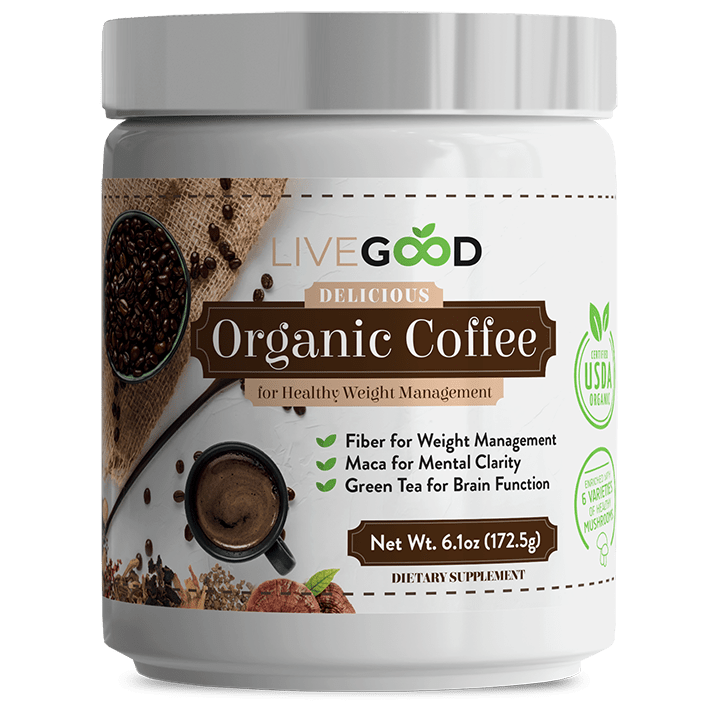
Now let’s talk about what is often added to your cup of joe. If you’re anything like the average American coffee drinker, you reach for extras like spoonfuls of sugar, dollops of cream—even flavored syrups. All those extras come with a price: an average of 67 extra calories per day, which can add up fast. Drinking coffee straight doesn’t cost you anything—and helps keep those extra useless calories away. If you’re serious about weight control, it’s worth considering a switch to black coffee, and better yet, give LiveGood’s Organic Coffee a try.
Good: LiveGood coffee can give you a boost to tackle those workouts.
If your goal is to lose weight, then you know that the healthy eating habits you’ve adopted work even better when combined with an exercise routine. But keeping up with the latter can be difficult too, even if you’re muscling through. And it doesn’t help that some people aren’t really morning people and can’t muster any motivation to hit the gym early in the day. If that sounds like you, don’t worry; it happens to the best of us. But what if I told you that having a cup of LiveGood coffee before your workout could improve your performance?
Recall that LiveGood coffee gives you a jolt, that powerful hit that raises your energy levels like nothing else. So, it should come as no surprise that consuming caffeine before a workout can put some pep in your step and make you feel good. And whether you drink your coffee cold or hot and black, it really doesn’t matter.
And listen to this: the real secret is that caffeine isn’t only great for giving you a jolt. It also helps boost the power of your muscles, increases your blood flow to carry oxygen to your heart and the rest of your body, and gives a lift to your sagging endurance. Some research hints that caffeine may even play an indirect role in weight control. The main thing is, can it make you happy? (Answer: Yes, if you love the stuff.)
If you’re going to be getting your heart pumping for over an hour, think about supplementing with electrolytes. If you’re losing a lot through your sweat. Especially if you’re not replacing them, you don’t want to get dehydrated.
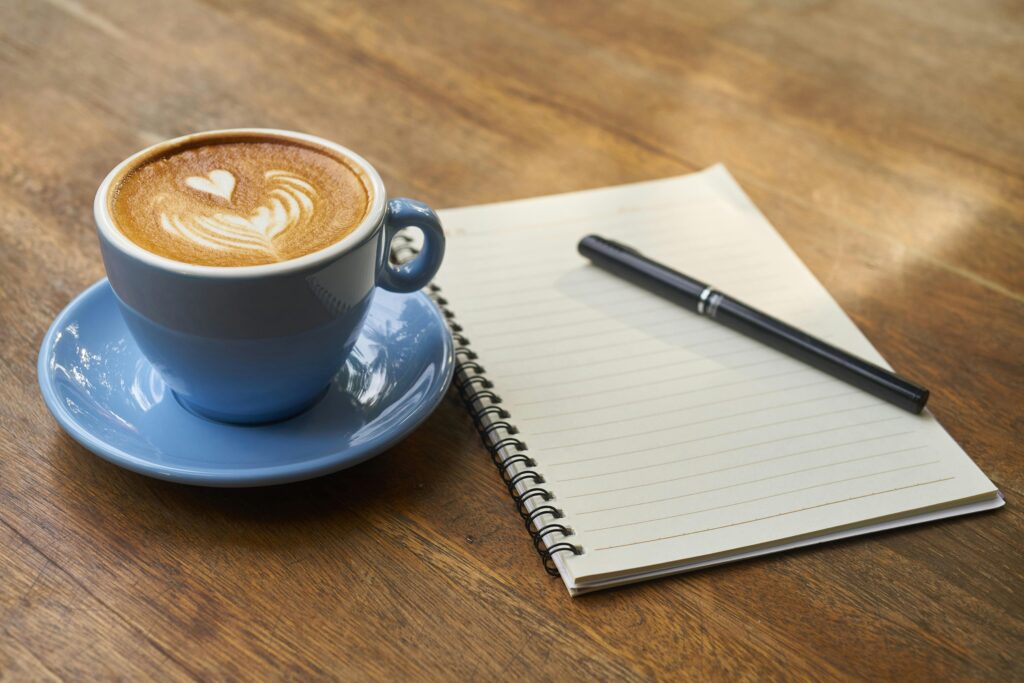
Bad: Not everyone reacts to coffee the same.
Every person has their own unique personality, and in the same way, they have their own personal reaction to coffee. It’s common knowledge that people’s bodies aren’t all alike, and what can work magic for one person might not have the same effect on someone else. We see this all the time, either in ourselves or in people we know. One sip of the java can transport you to the moon, while for another person, it can mean an entire day close to the toilet.
There are two types of people in this world when it comes to coffee. The first group wouldn’t dream of getting through a single day without savoring their favorite cup of java. For them, coffee is truly an experience—one that seems almost essential to what it means to be a sophisticated adult these days. Then, there’s the other group: people who feel like they’ve achieved something by turning their backs on coffee. Is it better not to be lured by the dark side? As it turns out, whether we’re coffee enthusiasts or coffee abstainers stems largely from our genetic makeup.

Coffee is more than just a basic drink; it’s practically a science experiment. Your LiveGood coffee at home doesn’t always taste like what you buy from a coffeehouse for several reasons: the kind of beans you use, their grind sizes, how darkly they’re roasted, and what proportion you use to water. And that doesn’t even take into account the serving temperature or the vessel you’re using to brew in.
Also, we need to mention the large quantities of coffee you’re consuming. Caffeine is often a faithful friend. It works in our favor when consumed in moderate to small amounts, giving us a nice pick-me-up, helping us pay attention and concentrate, and keeping us from feeling too sleepy. But taken past a certain limit, in your case that number might be slightly different since caffeine affects everyone a bit differently, (rapid heart rate, anyone?).
From the relatively mild malady of being too wound up to not being able to get a good night sleep, to the relatively rare occurrence of full-blown caffeine intoxication, it’s safe to say that any fan of the bean can fall into several of these traps when they’re overindulging.
The coffee conclusion
Did you realize that if you do your homework, you’ll find that coffee has some very interesting health aspects? If you’re looking to lose some weight, coffee can be quite helpful. It fills you up and gives you a little extra pep in the step. And it’s definitely delicious. So, what’s the bottom line? LiveGood coffee just might be your best friend while you’re trying to lose weight. And let’s not even get into all the cool things that coffee—both caffeinated and not—does for your insides.
Different individuals can have different reactions to caffeine. But overall, it is usually considered to be safe for most people to have about 3 to 4 cups of coffee a day. This amount works out to around 400 milligrams of caffeine, which is within the range of what the U.S. Food and Drug Administration (FDA) and other health authorities view as a safe daily intake.
Sure, there has been some buzz about how caffeine can step up your weight loss efforts, but let’s not get ahead of ourselves. Dropping those pounds is about more than just downing cups of coffee. It’s also about building healthy habits. Getting regular exercise and eating nutritious foods. Watching your calories. So, when you’re weighing the good and the bad, focus on making coffee work for you by staying away from the downsides and embracing the perks.
And if you really want to up your LiveGood coffee game, try adding some LiveGood Collagen in with it.
LiveGood Organic Coffee Reviews
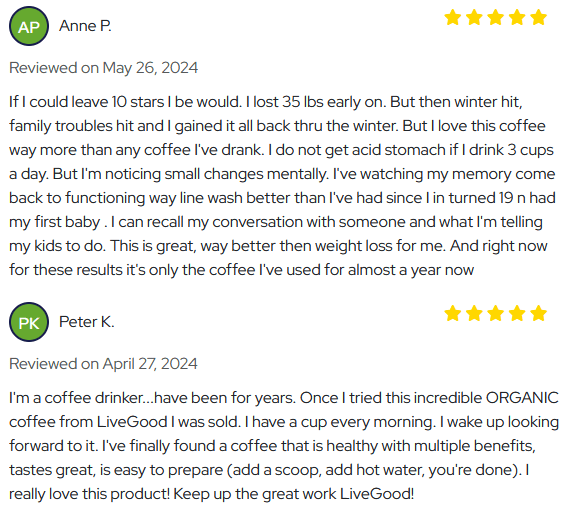
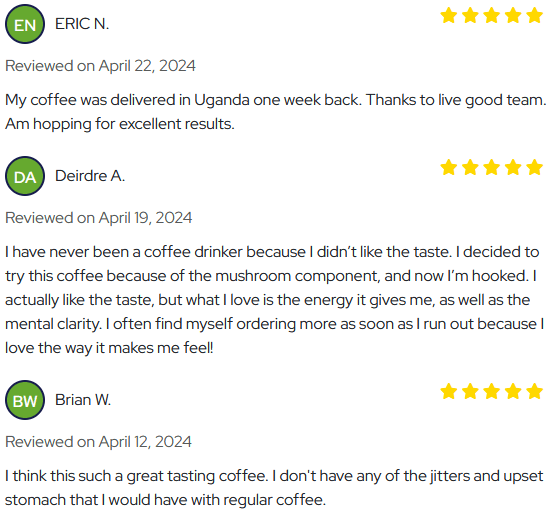
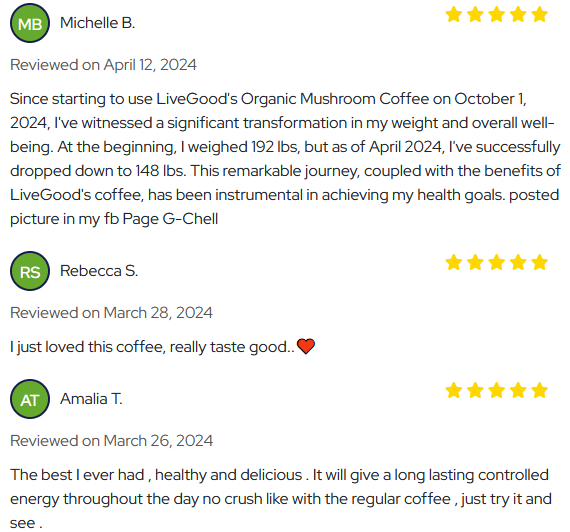
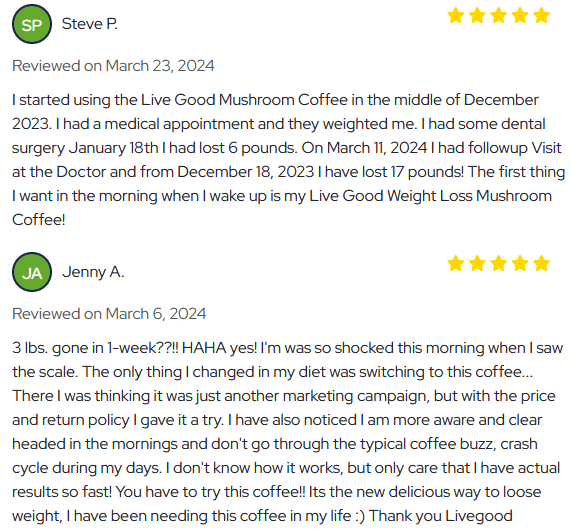
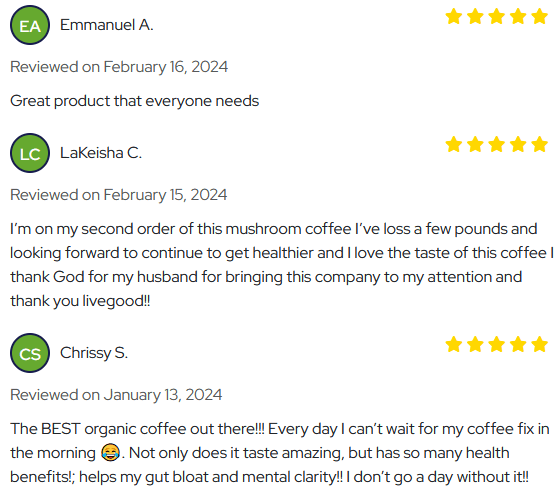

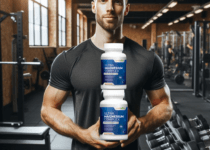

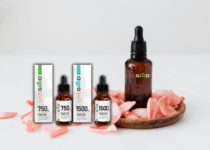
One Comment